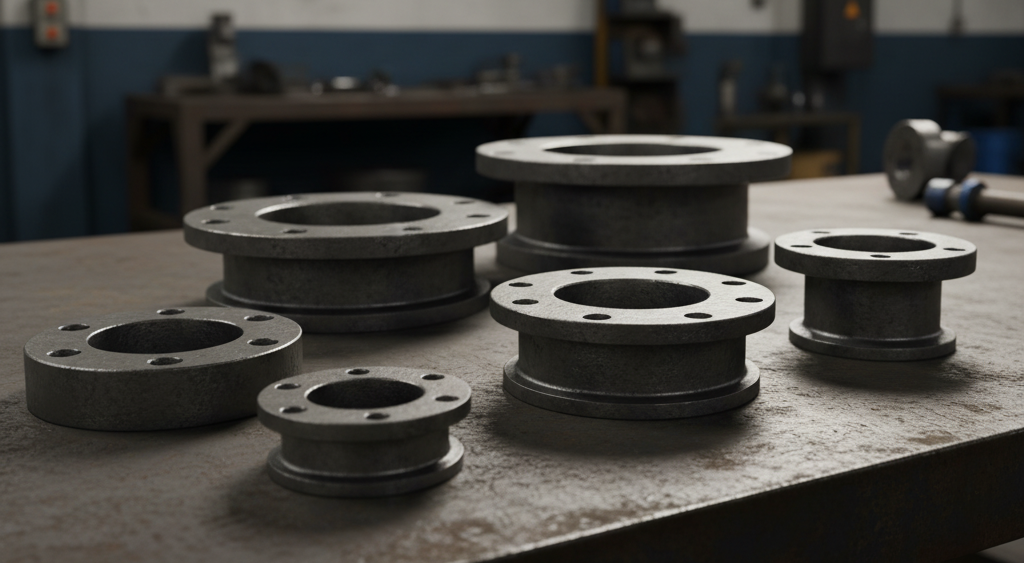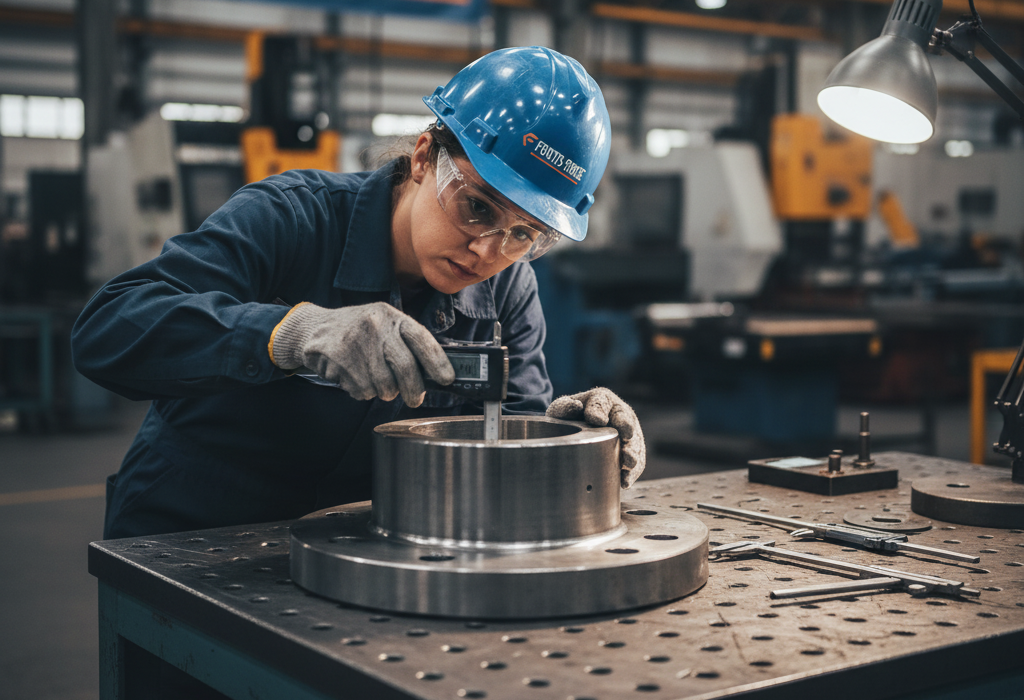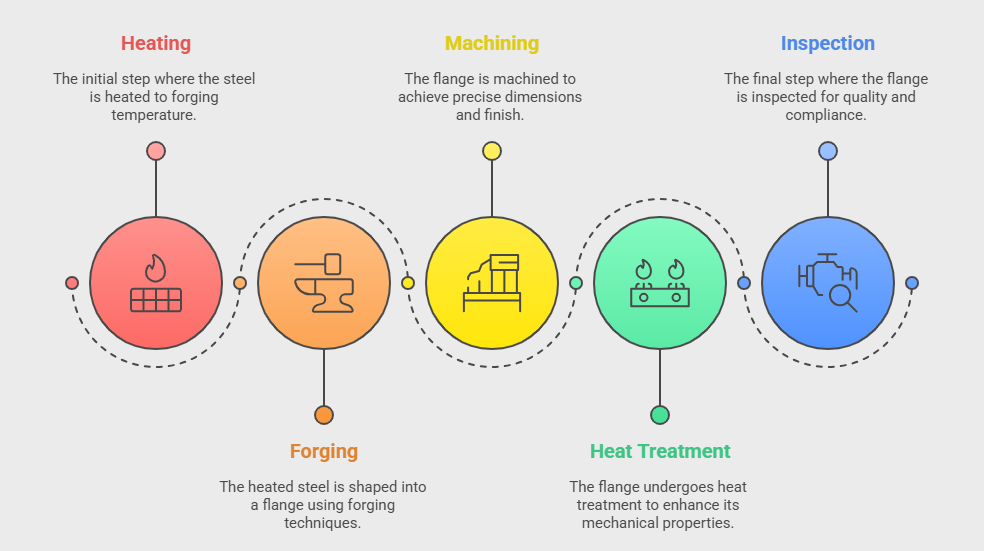Introduction
At Fortis Forge, we specialize in manufacturing premium carbon steel forged flanges. These critical components support industries worldwide by providing durable connections for pipelines and mechanical systems. In this blog, we will explore their benefits, applications, and advantages. You will also learn why carbon steel forged flanges are vital in modern engineering.

What Are Carbon Steel Forged Flanges?
A flange is a mechanical component used to connect pipes, valves, pumps, or equipment. Carbon steel forged flanges are made by heating and shaping steel under high pressure. Forging ensures greater strength, better grain structure, and resistance to wear.
The forging process also minimizes defects compared to casting. This means forged flanges deliver higher performance under demanding conditions.
Key Benefits of Carbon Steel Forged Flanges
1. Superior Strength
Forged carbon steel flanges withstand high pressure and temperature. They provide secure sealing in harsh environments.
2. Long-Term Durability
Their dense grain structure makes them more reliable than cast flanges. This durability reduces replacement and maintenance costs.
3. Corrosion Resistance
With proper treatment, carbon steel resists corrosion in oil, gas, and chemical industries.
4. Versatility
They are available in various sizes and pressure ratings, making them suitable for many industries.

Types of Carbon Steel Forged Flanges
Different flange designs support different industrial needs. At Fortis Forge, we produce several common types.
Weld Neck Flanges – Ideal for high-pressure systems.
Slip-On Flanges – Easy to install and remove.
Blind Flanges – Used to block pipeline ends.
Socket Weld Flanges – Designed for small-diameter pipes.
Threaded Flanges – Require no welding for assembly.
Lap Joint Flanges – Often used with stub ends for easy alignment.
Each type meets specific industry standards and provides reliability.
Applications of Carbon Steel Forged Flanges
These flanges are essential across many industries.
Oil and Gas – Transporting crude oil, natural gas, and refined products.
Chemical Plants – Handling corrosive and high-temperature fluids.
Power Generation – Supporting turbines, boilers, and cooling systems.
Shipbuilding – Ensuring strong joints in marine piping systems.
Water Treatment – Delivering safe flow in wastewater and clean water systems.
Their adaptability makes them indispensable for modern infrastructure.
The Forging Process at Fortis Forge
At Fortis Forge, quality starts with raw material selection. We use premium-grade carbon steel to ensure performance.
Step 1: Heating
The steel billet is heated to a precise temperature for shaping.
Step 2: Forging
Using pressure and force, the billet is compressed into shape. This step strengthens the internal structure.
Step 3: Machining
Advanced machining tools refine the dimensions of each flange.
Step 4: Heat Treatment
Heat treatment improves hardness, toughness, and resistance.
Step 5: Inspection
Every flange undergoes strict quality testing to meet international standards.

Why Choose Fortis Forge?
Fortis Forge stands out due to our:
Precision Engineering – Flanges meet exact industry specifications.
Global Standards – Products conform to ASME, ANSI, DIN, and ISO.
Custom Solutions – We provide tailored flange designs for unique needs.
Strict Quality Control – Every piece is tested for strength and safety.
Competitive Pricing – Offering cost-effective solutions without sacrificing quality.
We believe in long-term partnerships built on trust and performance.
Maintenance and Safety Tips
Maintaining carbon steel forged flanges ensures longer service life.
Regular Inspections – Check for signs of corrosion or wear.
Proper Installation – Follow correct torque and alignment guidelines.
Protective Coating – Apply coatings in corrosive environments.
Leak Testing – Conduct pressure tests to ensure tight sealing.
Professional Handling – Always use trained technicians for installation.

Future of Carbon Steel Forged Flanges
With the growth of global energy demand, forged flanges will remain crucial. Emerging technologies in forging and heat treatment will improve efficiency. At Fortis Forge, we continue investing in innovation to deliver next-generation flange solutions.
Conclusion
Carbon steel forged flanges are essential for industries requiring strength, safety, and reliability. At Fortis Forge, we manufacture flanges that meet global standards and exceed expectations. With our advanced forging process, you get products built for performance and longevity.
